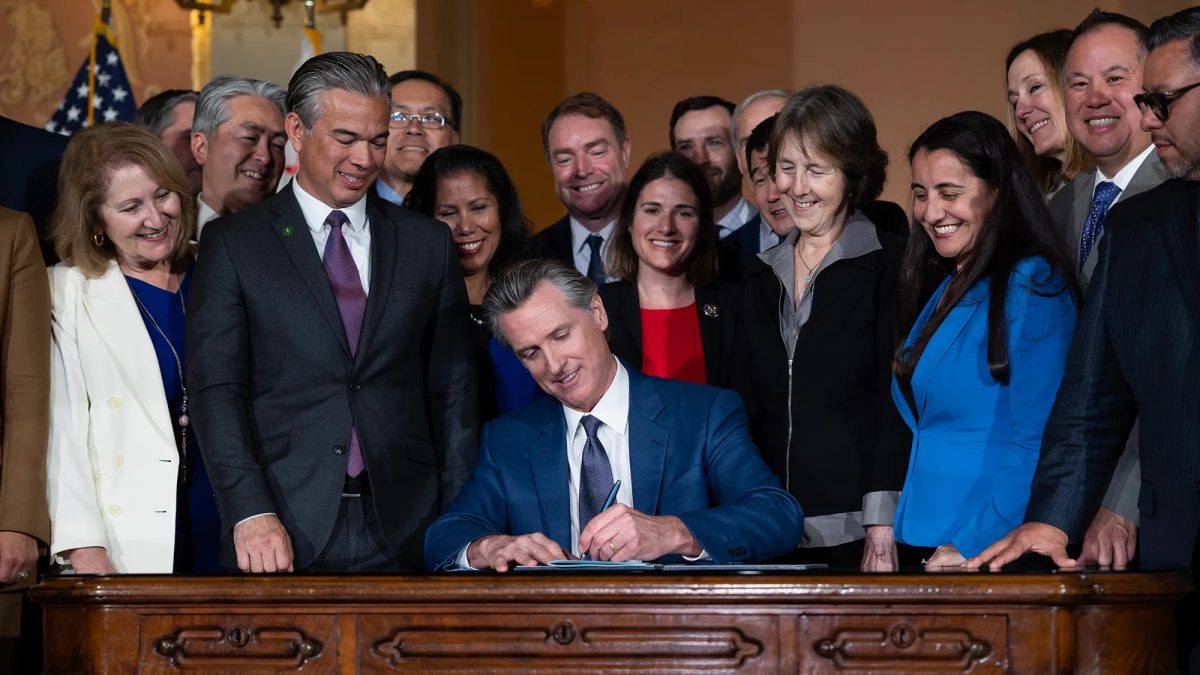President Trump’s return to the Oval Office and inauguration on Jan. 20th was accompanied by a recently established Republican trifecta among the House of Representatives and Senate, as well as a Supreme Court composed of mostly conservative judges who are likely inclined to limit abortion access. Instead of leaving abortion rights to each state, federal protections for reproductive healthcare access rights must be reinstated to preserve a woman’s physical and mental health and rights.
Due to the Supreme Court’s ruling in Dobbs v. Jackson Women’s Health Organization, Roe v. Wade, protecting a woman’s constitutional right to privacy, as listed in the 14th Amendment, was removed. Abandoning almost 50 years of precedent, this decision paved the way for states to ban or place extremely limiting restrictions on abortions, completely taking the freedom of choice away from women and equating them to lower members of society.
With a record-breaking high of ten states featuring abortion access on their ballots, the topic of reproductive rights was a key issue for voters during the 2024 election. Currently, 12 states have a total ban on abortions, and 29 limit access to women early in their pregnancy, leaving only nine states without bans or gestational limitations that grant women bodily autonomy. Approximately 22 million women and girls of reproductive age in the US now live in states where abortion access is heavily restricted, and often totally inaccessible. Now, more than ever, federal protections are needed to protect a woman’s physical and mental health, along with their right to their bodies.
The impacts observed after states banned abortion are devastating and exceedingly concerning as the Health Affairs conducted a study that discovered that the number of vasectomies surged by 95 percent and tubal sterilization by 70 percent among adults ages 19-26 since August 2022, two months after Roe v. Wade was overturned. Due to the permanent nature of these procedures, the average age at which people book these surgeries is in their late 30s but due to the consequences of an abortion ban, people feel cornered into taking such lasting preventive measures.
Restrictions to abortion access and similar reproductive health blockades do nothing to reduce abortions; in fact, they instead coerce Americans into performing unsafe abortions. The University of Colorado Boulder found that under a national ban, there would be a projected 24 percent increase in expected maternal mortality, with Black women having a 39 percent increase. Along with this, the National Library of Medicine found that around 11.3 million people have to travel at least an hour to locate a legal abortion clinic, making them completely inaccessible to a majority of people.
“A woman in Texas had to drive 18 hours to receive care for an ectopic pregnancy,” reported the Center for American Progress.
Instead of having to perform an unmedicated, unsafe abortion or travel cross-country to receive a professional one, American citizens are desperately pleading for the choice to choose.
“Advocating for abortion access aligns with principles of bodily autonomy, equity, and reproductive justice. It is not just about the right to choose, but also about ensuring that every person has the agency to make decisions about their own bodies and lives,” said a Hispanic student at the University of Houston to Young Invincibles.
Opposition to legalizing abortion as healthcare often argues that the termination of a pregnancy results in the death of an unborn human life and violates the right to life. However, 93.5% of reported abortions were performed before two and a half months of pregnancy, meaning that although the embryo has just formed into a fetus, most of its vital organs like lungs wouldn’t be able to survive outside of the uterus. The right to life should prioritize the mental and physical well-being of the mother, the only functioning, living being involved.
With the number of risks associated with unsafe abortions, including hemorrhages, infections, and uterine perforation, pro-life advocates should seek to avoid harming the lives of mothers and instead campaign for better reproductive healthcare and legal routes to abortion.
Abortion bans, regardless of gestational limits or state-dependent, result in more harm than good, necessitating federal protections for women and their right to choose, privacy, and equal protection. Petitions such as Restore Roe, and Defend Roe, have surfaced, and signing them is a way to defend the rights of women and restore the future of reproductive rights.































































